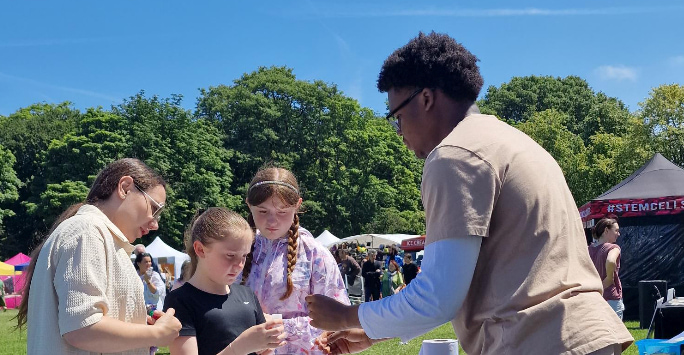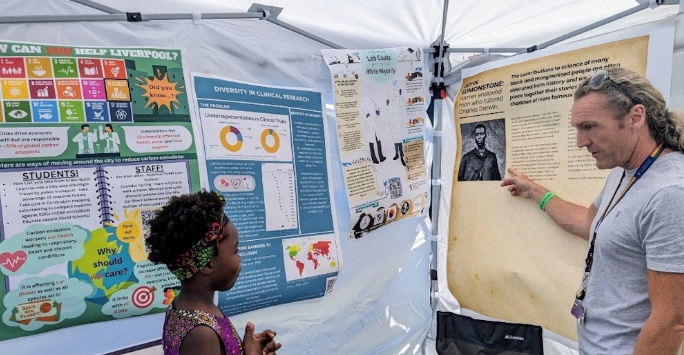
Staff and students from the Faculty of Health and Life Sciences recently attended Liverpool’s Africa Oyé Festival, a celebration of African music and culture. Amal Abdulkadir tells us about their experiences.
Held over two days, Africa Oyé is the UK’s largest free celebration of African music and culture. An annual event, the packed cultural programme focuses on health, wellbeing, learning and participation. This year a team from the Faculty of Health and Life Sciences joined the fun! Alongside Dr Carl Larsen and students Davishni (2nd year Biological Sciences) and Henry (2nd year Biomedical Sciences), we led a series of fun and educational science activities for families and adults.
Our booth saw a constant stream of visitors throughout the weekend, which meant we engaged with hundreds of visitors. Families, adults, and teenagers were keen to take part in the DNA experiments and learn about the University's efforts to decolonise the curriculum by sharing stories of marginalised Black and female scientists and discussing global health inequalities.

A highlight for many was the interactive activity where children extracted DNA from a strawberry and made DNA models using sweets. These provided a platform for meaningful discussions about diversity in science. We were happy to receive positive feedback such as:
Enjoyed the display by Carl Larsen and team at Africa Oyé. Important conversations about scientists whose contribution has been neglected, the need to diversify clinical trials and more. The children loved making DNA out of sweets!
Alongside us, Dr Jamie Hall and his team engaged with visitors to explore the microbiome and highlighted research from the University of Liverpool's Microbiome Innovation Centre. This added another layer of scientific discovery to the festival.
Overall, our participation at Africa Oyé was a resounding success. As a team, we look forward to continuing public engagement initiatives, promoting diversity in science, and fostering a more inclusive academic environment. Many thanks to the Faculty’s Public Engagement team, for their support.